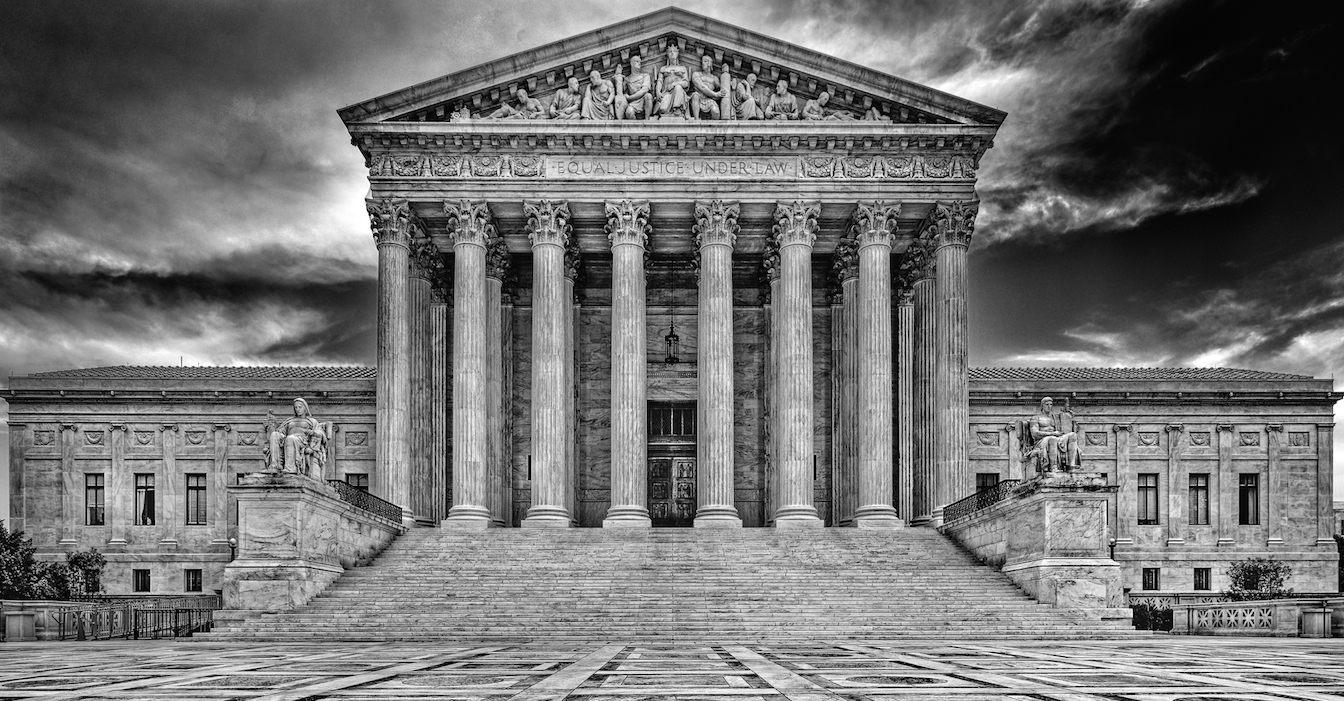The Supreme Court's conservative majority on Friday struck down Roe v. Wade, the 1973 decision that legalized abortion nationwide, ruling that the procedure was different from other rights affirmed by justices because it "destroys fetal life" and declaring that the judiciary must be free to reverse previous decisions when they are "egregiously wrong."
The ruling prompted an immediate backlash from abortion rights supporters, who had been anticipating it since an early draft of the decision was leaked in May.
"This radicalized Supreme Court is eviscerating Americans' rights and endangering their health and safety," Democratic House Speaker Nancy Pelosi said in her weekly news conference. "A woman's fundamental health decisions are her own to make in consultation with her doctor her faith, her family."
She promised Democratic lawmakers would continue fighting for such rights. "This is deadly serious, but we are not going to let this pass," she said.
In a White House address later Friday afternoon, President Biden called on Congress to enshrine Roe's protections in federal law but noted that Democrats lack the support to do so now.
"This fall, we must elect more leaders who will codify a woman's right to choose into federal law once again," Biden said. "The court is literally taking America back 150 years. It's a sad day for the court and the country."
Friday's ruling in Dobbs v. Jackson upholds Mississippi's Gestational Age Act of March 2018, in which the state's Republican-controlled legislature banned abortions after 15 weeks except in medical emergencies.
"This radicalized Supreme Court is eviscerating Americans' rights and endangering their health and safety. A woman's fundamental health decisions are her own to make in consultation with her doctor her faith, her family."
The state's only abortion provider, Jackson Women's Health organization, filed a lawsuit contesting the Act just days later, and an injunction blocking enforcement was eventually appealed to the U.S. Supreme Court.
By the time the court considered the Act's legality, six of the justices were Republican appointees - three appointed by former President Donald Trump after political manipulation of the nomination process by former Senate Majority Leader Mitch McConnell.
All six voted to overturn Roe and Casey v. Planned Parenthood, a 1992 decision upholding it, in the ruling published Friday. The action doesn't allow abortion, instead giving states freedom to regulate the procedure however they wish. Many have already passed laws sharply curtailing it that take effect with today's ruling.
"A right to abortion is not deeply rooted in the nation’s history and traditions," Justice Samuel Alito, a George W. Bush appointee, wrote for the majority. "On the contrary, an unbroken tradition of prohibiting abortion on pain of criminal punishment persisted from the earliest days of the common law until 1973."
While Roe’s defenders have characterized the abortion right as similar to those "recognized in past decisions involving matters such as intimate sexual relations, contraception, and marriage," it's fundamentally different - something both Roe and Casey acknowledged, Alito said. "It destroys what those decisions called 'fetal life' and what the law now before us describes as an 'unborn human being.'"
He rejected claims that the majority was turning its back on stare decisis, the practice of adhering to previous rulings in most cases.
'No rights to speak of'
"Precedents should be respected, but sometimes the court errs, and occasionally the court issues an important decision that is egregiously wrong. When that happens, stare decisis is not a straitjacket," Alito argued. "Roe was egregiously wrong from the start. Its reasoning was exceptionally weak, and the decision has had damaging consequences."
In its dissent, the court's liberal minority noted the balance that the Roe court had struck in allowing states to prohibit abortion once a fetus could survive outside the mother's womb, typically about six months into a pregnancy, but allowing significant obstacles before that point.
"Today, the court discards that balance," Justices Sonia Sotomayor, Elena Kagan and Stephen Breyer wrote. "It says that from the very moment of fertilization, a woman has no rights to speak of. A state can force her to bring a pregnancy to term, even at the steepest personal and familial costs. An abortion restriction, the majority holds, is permissible whenever rational, the lowest level of scrutiny known to the law. And because, as the court has often stated, protecting fetal life is rational, states will feel free to enact all manner of restrictions."
Pelosi echoed that sentiment at her news conference, referring to the ruling as the GOP's opening gambit.
"Because of Donald Trump, Mitch McConnell, the Republican Party and their supermajority on the Supreme Court, American women have less freedom today than their mothers," she said. "This is deadly serious, but we are not going to let this pass. A woman's right to choose reproductive freedom is on the ballot in November."
Pelosi also questioned the honesty of Supreme Court nominees who had promised to respect stare decisis during their confirmation hearings.
"What happened today was historic in many respects" for the high court, Pelosi added. Previously, "it had not recognized a constitutional right, then reversed it. This is a first."


